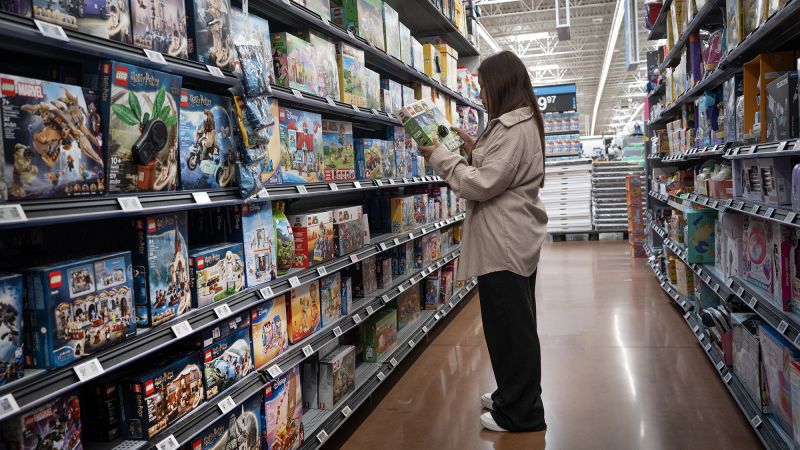In recent months, Americans have experienced a significant shift in their spending habits, marking a noticeable transition from the exuberance seen earlier in the year to a more cautious approach. The initial surge in retail activity was propelled by consumers anticipating higher costs due to tariff implementations introduced by the administration of former President Donald Trump. However, this rush to secure big-ticket items has led to a stark decline in retail sales in the month of May, as reported by the Commerce Department. Retail sales for that month fell by 0.9% compared to April, which was also revised downward, showcasing a concerning trend that could have implications for the economy.
The May figures reflect a considerable drop in consumer spending, signaling a potential economic slowdown. The decrease is exacerbated by poor car sales, which have drastically influenced overall retail performance. When excluding automotive sales, the drop in retail sales appears somewhat less severe, falling by only 0.3%. In early spring, many Americans opted to purchase major items sooner rather than later, trying to evade the impending price hikes that would accompany the tariffs. This forward purchasing drove retail sales up during March; however, the aftermath has shown a notable decline in consumer confidence, which is causing spending to contract sharply.
This emerging trend is particularly alarming as it suggests a broader shift in consumer behavior that may lead to further economic ramifications. Gregory Daco, chief economist at Ernst & Young, highlighted this point in an interview, noting that a pullback in consumer spending typically precedes a slowdown in Gross Domestic Product (GDP) growth and overall economic activity. Additionally, economist David Russell voiced concerns that the current labor market conditions, characterized by increasing job uncertainty and inflation affecting prices, could further suppress consumer spending. Though the unemployment rate remained steady at 4.2%, the potential for job losses could lead to a decline in consumer confidence and, subsequently, in consumer spending.
The retail sector, which is often considered the lifeblood of the U.S. economy, displayed declines across various categories in May. Car and auto parts sales saw a significant drop of 3.5%, the most considerable decline since June 2024. Moreover, sales at gasoline stations and home improvement stores also decreased by 2% and 2.7%, respectively, mainly reflecting falling energy prices. The decline in discretionary spending became evident as consumers reduced their dining expenses, with spending at cafes and restaurants dropping by 0.9%, the most considerable downturn since February of the previous year.
Despite these negative signals in several areas, certain sectors displayed resilience. Specialty stores and online shopping experienced growth during the same period, suggesting a shift in consumer purchasing preferences amid economic uncertainty. As shoppers become more discerning, the trajectory of consumer spending will largely depend on future developments within the labor market.
While current unemployment rates are relatively low, any signs of job loss could exacerbate the spending decline. The anxiety surrounding economic conditions has heightened in recent months, leading to a potential “demand cliff,” where consumer confidence could further diminish and take spending down with it. This idea has been supported by various consumer surveys that have observed a rising sentiment of unease, reflecting apprehensions about the future economic landscape.
The broader implications of declining consumer spending might be profound. Chris Rupkey, chief economist at Fwdbonds, equated the current state of the economy to a cautious hold by consumers who prefer to save rather than spend. He emphasized that may not be a definitive signal that a recession is imminent, but the economy is exhibiting a lack of confidence in future stability. As such, moving forward, it remains crucial to monitor labor market trends and consumer sentiment closely, as these elements will significantly shape the economic outlook.



